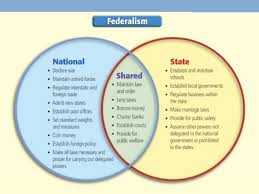
记忆方法
将“federalism”分解为“fede”和“ralism”。首先,“fede”可以联想到“feed”(喂养),想象各个“联邦”单位像是被一个强大的中心“喂养”或联系在一起的,这样就能记住“federalism”是指一种联邦制度或联合体。接着,“ralism”可以联想到“real”,强调这种联系是真实存在的。通过这样的联想,单词“federalism”可以更容易被记住。
以上内容由AI生成, 仅供参考和借鉴
英语词源
- federalism (n.)
- 1788, "doctrine of federal union in government," American English, from French fédéralisme, from fédéral (see federal). Also, from about the same time and place, "doctrines of the Federalist Party in American politics."
权威例句
- 1. Federalism is intended to diminish the power of the central state.
- 联邦制旨在削弱中央政府的权力。
- 2. Federalism implies a plurality of political authorities, each with its own powers.
- 联邦制意味着存在众多各自都拥有权力的政治管理机构。
- 3. Their vocabulary bristles fashionably with talk of federalism.
- 他们开口闭口都是联邦制度,满口时髦词汇。
- 4. They argue that the amendment undermines Canadian federalism.
- 他们认为该修正案损害了加拿大联邦制。
- 5. The discussion in this chapter, however, will be limited to the constitutional dimensions of federalism.
- 然而, 本章所讨论的问题将会限定在联邦制的宪法范围之内.